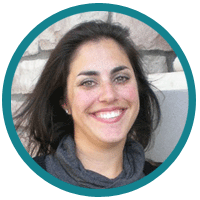Today I'm thrilled to re-share my podcast episode with Michael Bungay Stanier, whose book The Coaching Habit: Say Less, Ask More & Change the Way You Lead Forever is celebrating its one-year anniversary!
If you haven't read the book yet, now's the time to grab it! From March 1 to 3 The Coaching Habit eBook will be available for purchase for just 99 cents on Amazon.
There's also an awesome contest running from March 8 to 24. In honor of his famous haiku (mentioned below), Michael is inviting other influencers to submit their best coaching wisdom in just 17 syllables — their own coaching haiku. You can learn more about the contest and prizes here.
And here's my own coaching haiku for some inspiration:
Listen deeply. Dig
for what's not said. Flicker of
Joy becomes fireworks.
Podcast Replay: Tame the Advice Monster with Michael Bungay Stanier
We have all had the experience of sharing something that’s on our mind with a friend, family member, partner, or co-worker — then bristling in frustration or quiet defeat as they jump straight into trying to solve our problem with their brilliant advice.
What’s the alternative? Curiosity and a few simple coaching questions. That what I dig into on this Pivot Podcast with Michael Bungay Stanier, author of The Coaching Habit: Say Less, Ask More & Change the Way You Lead Forever! Not just for managers and coaches, today’s conversation will help all of us become better black-belt listeners. Written as a haiku, Michael’s message is:
Tell less and ask more.
Your advice is not as good
As you think it is.
More About Michael
Michael was banned from his high school graduation for “the balloon incident,” was sued by one of his Law School lecturers for defamation, gave himself a concussion digging a hole as a laborer, was fired on his first shift as a garage attendant and has held a number of jobs where he had little or no impact.
Luckily, there’s also been some upside. He is the author of a number of successful books including: End Malaria (which raised hundreds of thousands of dollars for Malaria No More), Do More Great Work, Get Unstuck & Get Going, Great Work Provocationsand most recently The Coaching Habit: Say Less, Ask More & Change the Way You Lead Forever. He is also the founder and Senior Partner of Box of Crayons, and was the first Canadian Coach of the Year. His real success in becoming a Rhodes Scholar and going to Oxford was meeting and marrying a Canadian who refuses to take him too seriously.
Topics We Cover
- Why coaching and today’s podcast isn’t just for “life coach-y types”
- 7 key questions to guide a coaching conversation
- How you can apply these questions to coach effectively in ten minutes or less
- What pick-up lines have to do with coaching and The Kickstart Question
- The best coaching question in the world (and it’s only three words long!)
- Why laziness is a benefit to you and the person you are talking to
- The importance of getting comfortable with silence; why it is challenging and the reasons silence is actually a measure of success
- No more fake active listening!
- The benefit of sticking to questions that start with instead of why
- The pitfalls of trying to get more data (asking questions for your sake) versus getting curious instead
- Avoid rushing to action; even how questions aren’t as important as exploring the what
- Stop solving the wrong problems and get to the heart of things with The Focus Question: what’s the real challenge here for you?
- How the Drama Triangle (Victim, Persecuter, Rescuer) can inform conversations (and relationships) that have veered off course
- How to pull yourself out of trying to be helpful to so many people
- Why we should stop humblebragging about being “good busy” and “working smarter, not harder”
- Combatting those habits with The Strategic Question: if you are saying yes to this, what are you saying no to?
- Double-loop learning and The Learning Question: what was most useful for you?
Podcast: How to Tame the Advice Monster
Press play on the embedded player below or listen on iTunes, SoundCloud, or Overcast:
Resources Mentioned
- Book website: The Coaching Habit
- Michael’s Great Work Podcast
- Michael on Twitter @boxofcrayons
- The Drama Triangle
- Beautiful Writer’s Podcast: Elizabeth Gilbert on the challenges of saying no
- Books mentioned:
As Michael says at the end of his book,
“The real secret sauce here is building a habit of curiosity. Find your own questions, find your own voice. And above all, build your own coaching habit.”











